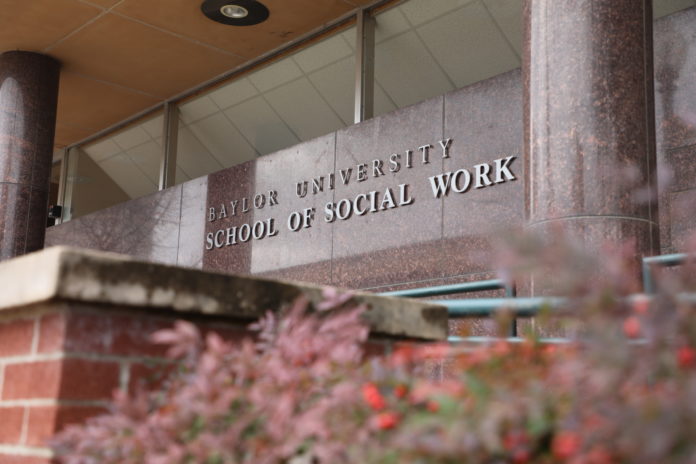
By Matt Kyle | Staff Writer
Baylor social work professors Dr. Holly Oxhandler and Dr. Clay Polson received an $843,647 grant from the John Templeton Foundation through the University of South Alabama to study faculty views and behaviors regarding training students to address clients’ spirituality in mental health treatment.
The pair’s research is one of four sub-projects of the University of South Alabama’s Spiritual and Religious Competencies Project, which aims to equip mental health professionals with the basic competencies to address the religious and spiritual aspects of clients’ lives.
Oxhandler, the associate dean for research and faculty development in the Diana R. Garland School of Social Work, said the pair’s research involves studying the attitudes of faculty toward training students to integrate spirituality into mental health care, factors that help or hinder integration and the spiritual backgrounds of faculty respondents. Oxhandler said they will accomplish this through a national survey posed to graduate faculty members across the mental health disciplines of counseling, marriage and family therapy, psychology and social work.
Oxhandler said it is important for mental health professionals to address the spirituality of clients because in many cases where spirituality is addressed, the outcome of treatment is improved.
“What we see in the research is that when clients’ religion or spirituality is ethically and effectively integrated into mental health treatment — meaning the mental health care provider is assessing for this area of their lives and asking them how it relates to their mental health care or circumstances or situations, how they’re leaning on it to cope or maybe ways in which it’s been a source of pain for them in the past,” Oxhandler said. “When we do it in an ethical and effective way, it ends up, in many cases, improving treatment outcomes, so clients oftentimes tend to get better faster.”
Oxhandler said the role of clients’ religion in their mental health treatment has not been addressed in the past due to the lack of research and potential social disapproval of the subject.
“We’ve seen that some of the barriers to integrating client faith into practice is that the providers are saying, ‘Well I didn’t get training, I don’t want to impose, I don’t want to come across as proselytizing or anything like that,’” Oxhandler said. “There just needs to be a little bit more equipping on how to do this, because we see that practitioners tend to be very open to talking about it. They just don’t know yet how to do this.”
Polson, an associate professor in the School of Social Work, said the grant allows the project to be much larger and more comprehensive.
“Without this level of funding, I think that even envisioning a project this comprehensive would be challenging,” Polson said. “This makes it possible for us to do such a large project, looking at all the disciplines. The dream is looking at all of these at the same time. It’s just not something that we would be able to do without this level of funding support.”
Polson said the final goal of the project is to help mental health professionals realize the need to integrate spirituality with mental health and to equip them to do so.
“The larger project is really trying to see kind of a transformation occur where practitioners feel more competent and comfortable addressing clients’ religious and spiritual beliefs in their practice,” Polson said. “We want awareness, but ultimately, the goal is to see more comfort, to see practitioners using their skills and knowledge to do this better.”





